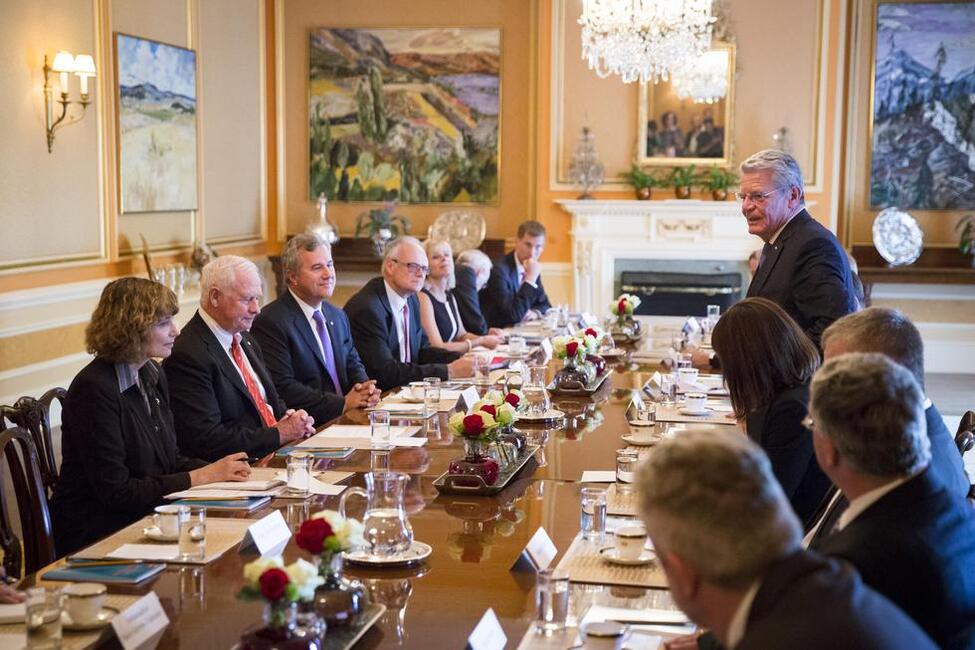Thank you very much for this warm welcome! Daniela Schadt, our delegation and I are very much looking forward to our time together, even though we can only take in a small part of the vastness and diversity of Canada. From Newfoundland to British Columbia, from Nunavut to Ontario, there is much more here than we will be able to see and experience over the next few days! My greetings today extend to all Canadians, including those whose provinces I will be unable to visit.
It is a long time since a President of the Federal Republic of Germany visited your country – the last one was Richard von Weizsäcker in 1990. That was the year in which the German football team won the World Cup. Now, in 2014, we are experiencing this wonderful combination once again. I think that the time between German state visits should be shortened considerably.
Governor General, I am delighted to be able to follow on from what you said about the relations between our countries. The driving force behind this trip is indeed friendship. I come as a European who values transatlantic relations very highly. Now, more than ever – at a time of very many crises and wars – we need a close partnership spanning the Atlantic, like the one between Canada and Germany. As a founding member of NATO, Canada has long been an important guarantor of German security. And when in a few weeks we commemorate the 25th anniversary of the fall of the Wall and the peaceful revolution in Germany and in Central and Eastern Europe, we Germans also remember how many states supported us then during those turbulent times. One of them was, of course, Canada. Today, the close German-Canadian cooperation within NATO, in the OSCE and in the United Nations is an important foundation of our transatlantic relations.
I come with great thankfulness for what we have already achieved. But I also come, of course, with specific questions. How can we keep our cooperation alive? How can we cooperate even more closely – for example, in the area of international trade, on issues concerning energy supply or on international climate protection? Leading representatives of German business are accompanying me on this trip with the desire to grasp the opportunities for still more intensive cooperation with Canada in the fields of business and technology. And Daniela Schadt already knows that on Friday, when we discuss immigration and integration, she wants to hear how Canada obtains its excellent PISA results – despite the many different native languages spoken in this multicultural immigration country.
Ladies and gentlemen, even though many hours of flying time lie between our countries, the issues that concern us in international politics and in our personal day-to-day lives are often very similar, for we share the same values. I can therefore sum up my greatest hope for my visit in one sentence: I would like to see Canada and Germany become even more aware of what they have in common and use that as a foundation on which to build something new, good and strong!


